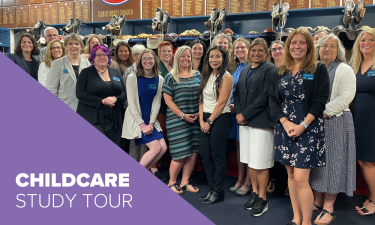By Jim Hedrick, GSI WA State Lobbyist and Spokane Regional Advocate

The 2024 regular Legislative session has three weeks from its conclusion and has passed its procedural midpoint the House of Origin cutoff on Tuesday. The vast number of bills introduced during the biennium are dwindling and legislators are now back in committees, largely considering a smaller set of bills already debated, amended, and passed by the other chamber. At this point in session, the process moves a little slower as interests in the opposite house bills tends to wain but cutoffs come more quickly allowing just eight days for the Opposite House policy committees to hear and pass referred bills, compared to 24 days for the House of Origin at the beginning of session.
As floor action wound down early this week, the chambers passed some of the more contentious bills of the session regarding firearms dealers, traffic cameras, sentencing modifications, holocaust education, and unemployment insurance for striking workers. Great speculation always exists as to what will be the 5:00 bill in each chamber. Under legislative rules, as long as a bill has been read in or “started” (and usually paused on cutoff day) prior to the 5:00pm deadline, debate is allowed to go on as long as necessary. This year, the Senate adjourned at 4:15pm after passing a bill officially bestowing “The Evergreen State” as the state’s nickname. The House, on the other hand, debated HB 2114 (Alvarado, D-34), the heated rent stabilization bill. The bill prohibits increasing rent more than once in a 12-month period and prohibits increasing rent more than 7% during a 12-month period for month to month and long-term leases. It also requires that landlords charge the same for month-to-month and long-term leases. Additionally, combined total move-in fees and security deposits cannot exceed the cost of one month’s rent and late fees are capped at 1.5% of a tenant’s total monthly rent. The legislation passed 54-43 with four Democrats voting against it. It now heads to a Senate that is slightly more moderate than the House and probably less likely to pass it.
In the wee hours of Tuesday morning, after working throughout the night, the House passed controversial House Bill 1893 (Doglio, D-Olympia) which would authorize access to unemployment insurance (UI) benefits to striking employees or employees locked out of their workplace by their employer due to a labor dispute. Under HB 1893, striking workers would become eligible for unemployment insurance on the second Sunday following the first day of a strike and could then begin to receive benefit payments after an additional one-week waiting period. The bill would also remove a section of state law that disqualifies employees from unemployment insurance during employer-initiated labor lockouts. Employers and industry groups who adamantly oppose the bill argue the UI system was not created for voluntary separation from their employment, it will place stress on the overall health of the UI insurance system and places all the costs on employers who fund the UI system. The Washington Employment Security Department (ESD) who administers the UI system, estimates the bill would lead to less than a 1% increase in UI claims when a qualifying strike occurs. House Democrats amended the bill on the floor, adding language to shift benefit costs onto employers involved in labor disputes covered by the legislation, rather than spreading the expense across the unemployment insurance system. HB 1893, a priority for the Labor lobby this session, passed the House on a narrow 53-44 vote with 5 House Democrats joining all Republicans against the bill. HB 1893 next goes to the Senate, where companion legislation is pending.
After three hours of Senate floor debate, SB 5241 (Randall, D-Bremerton) arrived in the House Civil Rights & Judiciary committee on Wednesday. Known as the “Keep Our Care Act,” the bill is a carry-over from the 2023 session, when Democrats proposed a package of bills designed to preserve access to abortion and other reproductive care in response to the fall of Roe. v. Wade in 2022. If passed, hospitals and health systems would have new reporting requirements during mergers or acquisitions, such as providing documentation on how the change would affect access to reproductive, gender-affirming, emergency, charity, and end-of-life care. It would also give the Attorney General’s Office power to determine if the merger or sale would negatively impact access to affordable health care and the AGO could block a merger or impose conditions. Last session the bill did not advance past Senate Rules, but this year the bill has new momentum despite opposition from hospitals and provider groups, particularly in rural areas, who point to a dire financial state in healthcare and lack of stakeholder outreach on the legislation. If passed, SB 5241 would certainly be a talking point for Senator Randall, who is also a candidate for the open seat in the 6th Congressional District.
The House of Origin Cutoff also signals the end for some bills; for the second straight year the WRAP ACT, a sweeping plan to revamp the state’s recycling system, did not come to a House floor vote and will not advance any further this session. House Bill 2049 (Berry, D-Seattle) would have required producers of packaging sold in Washington to pay for a system to recycle that packaging. The bill met a formidable coalition of opponents including solid waste collectors, grocery stores, and the hospitality industry. Another bill in the recycling space also died; House Bill 2144 (Stonier, D-Vancouver) would have imposed a version of Oregon’s bottle- deposit system. The two ideas were combined in a single bill last year, which also failed to come to a House vote. The objective of the combined bills was to increase the recycling rate in Washington State to over 80%, currently just under 50 percent according to various studies by environmental interests. It is expected the proponents will be back next year with similar legislation.
This week Washington State celebrated the 50th anniversary of the Boldt Decision, a historic case that ruled Native Americans are entitled to half the salmon catch in Washington, affirming that tribes are sovereign nations and obligating the U.S. to keep the promises of long-ago signed treaties. Prior to Boldt’s ruling, tribes collected less than 5% of the harvest, but by 1984, were collecting 49%. On Wednesday, the Senate Early Learning & K-12 Committee heard HB 1879 (Lekanoff, D-Skagit County) which names the curriculum used in public schools to teach about tribal history, culture, and government as the John McCoy (lulilaš) Since Time Immemorial curriculum. Tulalip Senator John McCoy, who died June 6, 2023, served in the House from 2003- 2013, and in the Senate from 2013-2020. McCoy also served as chairman of the executive committee of NCSL’s National Caucus of Native American State Legislators. According to NCSL, there are 89 Native legislators in 21 states.
Each session, budget writers await the mid-session revenue forecast before putting the finishing touches on their budgets. On Wednesday, the forecast showed a “slow growing economy” but the forecast of funds subject to the budget outlook has increased by $337 million (0.2%) for 2023-27 biennia. Total state revenues are expected to grow 3.5% between the 2021- 23 and 2023-25 biennia and 7.0% between the 2023-25 and 2025-27 biennia.
Senate budget writers released their 2024 Supplemental Capital Budget proposal on Thursday. The Capital Budget funds construction and maintenance of infrastructure and physical projects throughout Washington. This year, the budget includes funding increases including:
- $121.5 million for K-12 school construction,
- $119 million in total housing funding, including $111 million for the Housing Trust Fund,
- $44.8 million for behavioral health and substance use disorder treatment facilities run by the state’s partners in tribal government, funding facilities for the Colville, Jamestown S’Klallam, Kalispel, Lummi, Quinault, and Suquamish tribes.
- $44.5 million for the purchase and modernization of the Olympic Heritage Behavioral Health Hospital in Tukwila, which was purchased by the state in the summer of 2023 after its private operator suddenly shut it down.
- $25 million to help the Quinault Indian Nation acquire privately-owned working forest land on its reservation.
- $25 million to help Energy Northwest develop small modular nuclear reactor technology, which requires tribal consultation before moving forward.
- $12.49 million for other behavioral health community capacity grants, including $8.5 million for opioid addiction treatment facilities.
- $10 million for a digester at the WSU Knott Dairy — the creamery that produces Cougar Gold cheese — to help turn manure into clean energy.
- $10 million to support the 2026 World Cup, which is expected to bring more than $100 million back in economic impact to the Seattle area.
- $8.6 million for the Nisqually Indian Tribe for its electric grid, EV charging, and wastewater treatment, to help complete its energy sovereignty initiative.
- $1.5 million for the Garfield High School “superblock” in Seattle’s Central
As this week wraps up, most legislators will return home to their districts for the weekend to hear from constituents at town halls, traditionally scheduled for the weekend after the House of Origin cutoff. Many will recover from cold, flu and COVID as many legislators are noticeably doing committee hearings remotely in quarantine.
Upcoming Dates:
February 21 – Opposite House Policy Committee Cutoff
February 26 – Opposite House Fiscal Committee Cutoff
March 1 – Opposite House Floor Cutoff
March 7 – Last day of Regular Session
For More Information
Public Policy developments change fast. Note this is a wrap-up of the week of February 12-16. You can find the prior week wrap-up here: February 5-9, January 9-February 3, January 22-26, January 15-19, and January 8-12, 2024. For more details about any of the bills in this article, visit the Washington State Legislature page to search by bill number. For more information contact Jake Mayson, Director of Public Policy.





